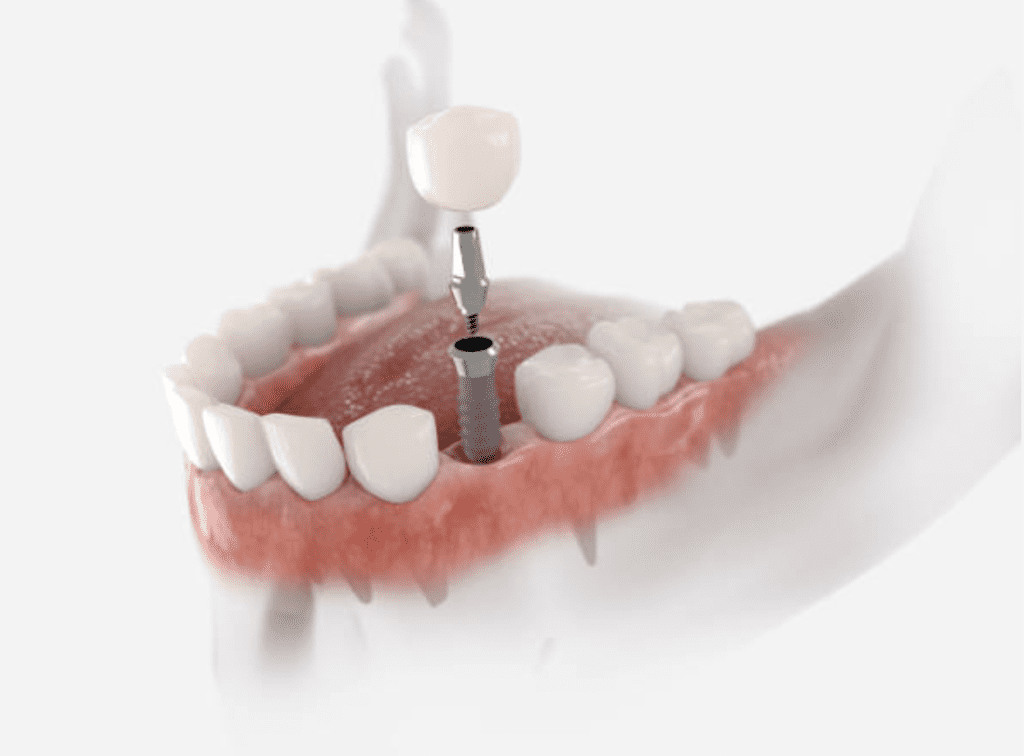There are so many tooth replacement options that it can be overwhelming for you to decide. This can be difficult, especially if you unexpectedly lose a tooth. While you look for the best option, your dentist will provide you with temporary possibilities to avoid any structural issues.
These structural issues can include bite problems from shifting teeth or even future missing teeth. In fact, your teeth rely on each other to stay in place. Once one tooth is gone, the others will shift to make up the difference, potentially loosening your remaining teeth.
Since there are a variety of options, you can decide what the best choice for you and your lifestyle is. Dentures and dental bridges are common choices for missing teeth. Many patients choose them for the quickness of the procedure. Additionally, the process is less invasive. However, there is another replacement option that you can consider: dental implants.

What Are Dental Implants?
Dental implants are a form of prosthetic teeth that fill the gap from your missing tooth. In fact, they are titanium tooth roots, meaning the implant begins underneath the surface of your gums. Unlike dental bridges or dentures, dental implants require surgical placement. While it is a more invasive and lengthy process, it provides a permanent replacement.
Once your dentist determines you are a good candidate for a dental implant, you will begin the process. The first step is for your dentist to place the post—the piece that acts as the root. After they set the post, the surgical site must heal completely before continuing with the process. This is because the post needs to integrate with your jawbone to provide a solid foundation for your implant.
Next, your dentist will place the abutment—the connector piece—and a temporary crown. The abutment connects the crown to the post. Before you can get your permanent crown, the site must heal from the abutment placement. Finally, you will receive a permanent crown as the last step.
What Are The Benefits?
Dental implants last much longer than any other replacement option. With proper care, dental implants can last a lifetime, which is one of its biggest appeals. Dental bridges or dentures only last between 5-15 years, barring no complications. Additionally, you may have to replace dentures or dental bridges several times once they wear out.
Another significant benefit is that your oral hygiene routine doesn’t have to change. This means that you can brush and floss like normal. This is because dental implants look and function like natural teeth. You won’t have to worry about taking them out to soak like dentures.
Also, since dental implants integrate into your jaw, you don’t have to worry about them sliding or moving while you eat or talk. Dentures are known to shift around while eating or speaking, making it difficult for you. With dental implants, you don’t have to think about it. It is like you never lost a tooth.
Since the procedure is lengthy and invasive, you should talk to your dentist to make sure dental implants are right for you.
